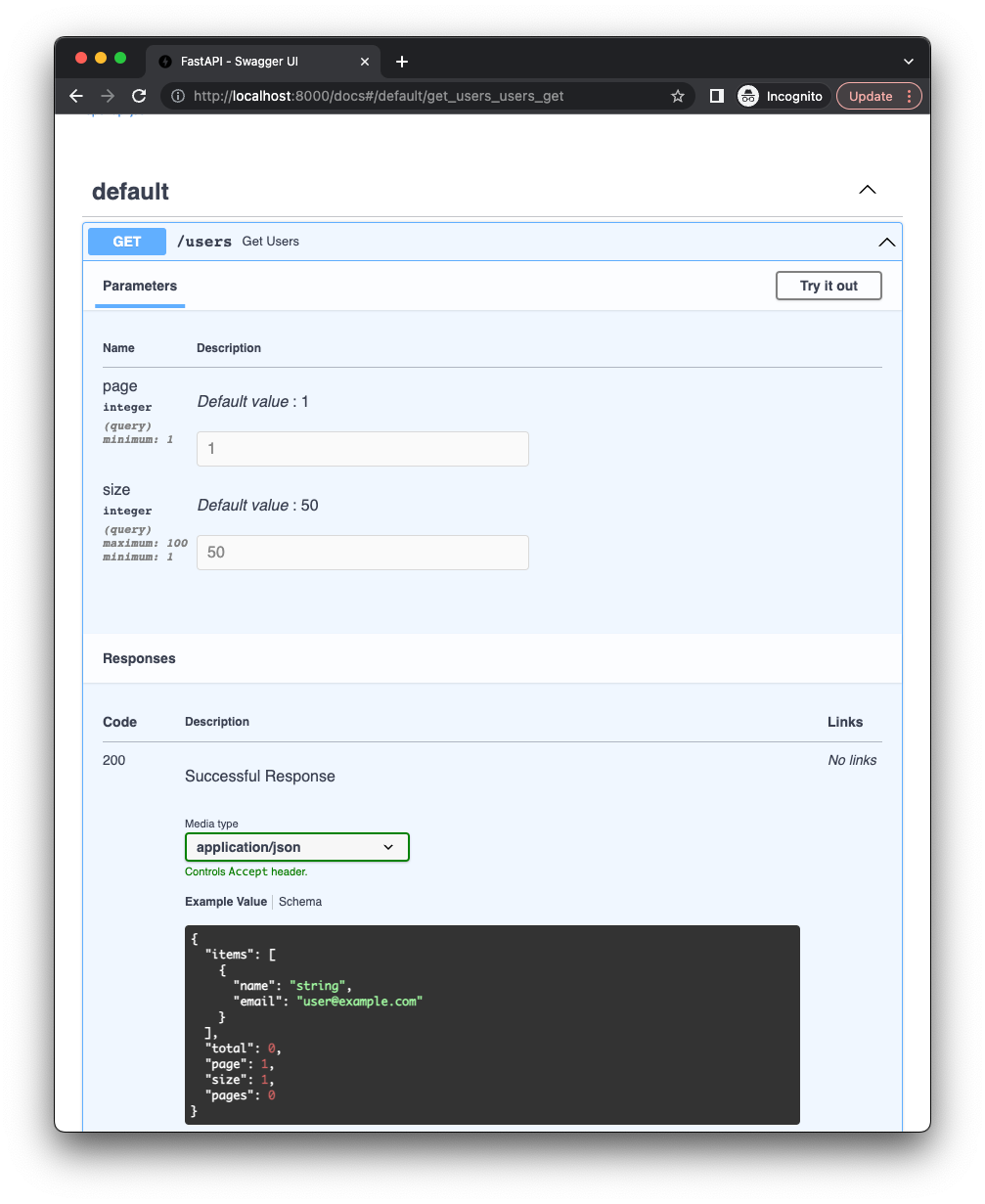Links in Pagination
If you want to add pagination links to your response, you can use pages from fastapi_pagination.links module.
It contains Page class for page-number pagination, LimitOffsetPage for limit-offset pagination.
Response schema will contain additional links field with pagination links:
first- link to the first page.last- link to the last page.self- link to the current page.next- link to the next page.prev- link to the previous page.
Example
For instance, let user page-number pagination from links module:
from typing import List
from fastapi import FastAPI
from pydantic import BaseModel, EmailStr
from fastapi_pagination import add_pagination, paginate
from fastapi_pagination.links import Page
app = FastAPI()
add_pagination(app)
class UserOut(BaseModel):
name: str
email: EmailStr
users: List[UserOut] = [
# ...
]
@app.get("/users")
def get_users() -> Page[UserOut]:
return paginate(users)
Now when we will call /users endpoint we will get paginated data like this:
{
"items": [
{
"name": "John",
"email": "john@example.com"
},
{
"name": "Jane",
"email": "jane@example.com"
},
{
"name": "Bob",
"email": "bob@example.com"
}
],
"page": 2,
"size": 3,
"pages": 34,
"total": 100,
"links": {
"first": "http://localhost:8000/users?page=1&size=3",
"last": "http://localhost:8000/users?page=34&size=3",
"self": "http://localhost:8000/users?page=2&size=3",
"next": "http://localhost:8000/users?page=3&size=3",
"prev": "http://localhost:8000/users?page=1&size=3"
}
}
OpenAPI
Code above will add pagination parameters to the endpoint and you will see them in the OpenAPI docs.
